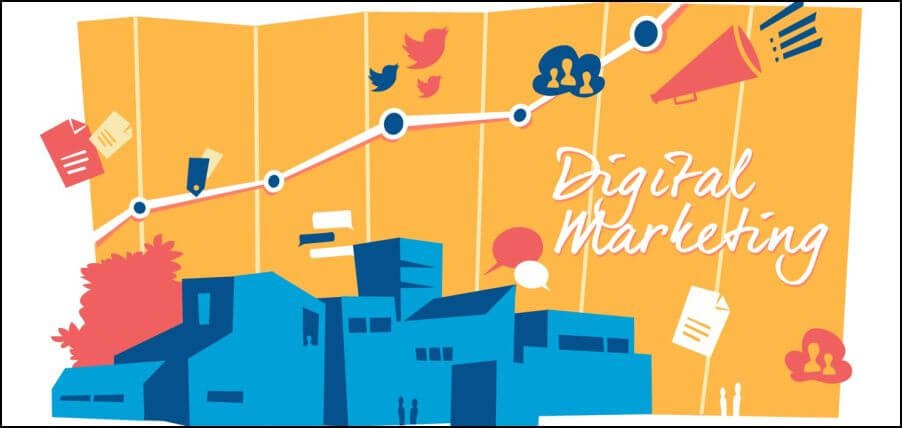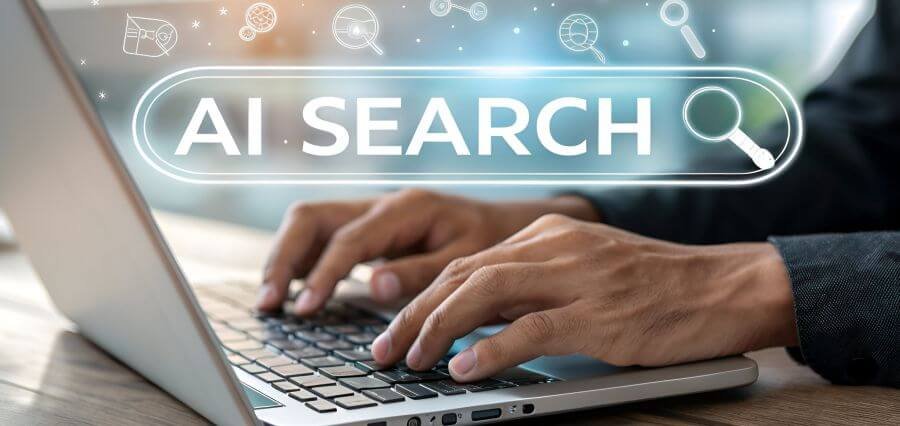In 2025, the intersection of technology and consumer behavior will continue to shape how brands engage with their audiences. Companies that leverage these trends will not only enhance their marketing effectiveness but also drive growth and success in an increasingly competitive environment. This article explores key modern marketing trends and practical strategies to execute successful projects, ensuring businesses remain at the forefront of their industries.
First things first, a good payroll!
An efficient payroll system is foundational for any organization’s success, especially in a fast-paced, evolving market. Automated payroll services not only save time but also enhance accuracy and compliance, freeing teams from administrative burdens and reducing errors in tax filings or employee payments. This efficiency allows businesses to redirect resources toward growth-driven initiatives, such as marketing and innovation, while ensuring that employees are paid accurately and on time, which boosts morale and productivity.
Asanify, for instance, is a comprehensive HR Management and Payroll solution designed for fast growing global businesses. You can even pay your contractors globally across 200+ countries. With our end to end solution, you can track your employee’s Leave, Attendance, Performance, Expenses and Payroll – all in one system that has been Rated #1 Globally on Ease of Use.
Key Features:
- Automated payroll processing and tax filing
- End to end EOR and Global Contractor Payroll
- Employee self-service portals for leave and attendance management
- Seamless integration with accounting platforms
- Real-time reports and insights on workforce data
- Customizable employee onboarding and documentation
- Remote workforce management tools
Best Suited For:
- Fast-growing startups
- Mid-sized businesses looking for an affordable and efficient payroll solution
- Companies looking to hire and pay Employee and Contractors globally
- Businesses aiming to simplify HR management and reduce manual efforts
- Teams requiring seamless integration with accounting software
Don’t Underestimate Influencer Marketing
Influencer marketing agencies play a vital role in modern marketing strategies by connecting brands with targeted audiences through trusted voices. As consumers increasingly value authenticity, influencers help build credibility and foster deeper connections with potential customers. Partnering with a specialized influencer marketing agency, like House of Marketers for instance, enables brands to tap into diverse influencer networks, create impactful, tailored campaigns, and analyze engagement metrics, helping maximize the return on investment and further establishing brand authority in the market.
Here are five key points highlighting how influencer marketing agencies are helpful in marketing:
- Expertise and Strategy: Influencer marketing agencies provide specialized knowledge and experience, helping brands develop tailored strategies that effectively target their desired audiences and align with marketing goals.
- Access to Diverse Influencer Networks: Agencies have established relationships with a wide range of influencers across various niches and platforms, allowing brands to connect with authentic voices that resonate with their target demographics.
- Campaign Management: Influencer marketing agencies handle the logistics of campaigns, including influencer selection, communication, contract negotiations, and execution, enabling brands to focus on their core business activities.
- Performance Tracking and Analytics: Agencies offer valuable insights into campaign effectiveness through analytics and reporting tools, tracking key metrics like engagement rates and conversions to help brands measure ROI and refine strategies.
- Building Credibility and Trust: By partnering with trusted influencers, brands can enhance their credibility and foster consumer trust, as audiences are more likely to engage with recommendations from influencers they admire and follow.
Example: Heepsy
Heepsy is an influencer marketing platform that allows brands to find and connect with the right influencers for their campaigns. With its extensive database of over 11 million influencers across various social media platforms, Heepsy helps brands identify potential partners based on niche, audience demographics, engagement rates, and more. This makes it easier for marketers to execute targeted influencer campaigns that resonate with their desired audience.
Key Features:
- Advanced Search Filters: Users can search for influencers based on location, category, audience size, engagement rates, and other metrics to find the perfect match for their brand.
- Detailed Analytics: Comprehensive insights into influencer performance, including engagement metrics and audience demographics, helping brands make informed decisions.
- Campaign Management Tools: Features that streamline the process of managing influencer partnerships, tracking deliverables, and measuring campaign success.
- Collaboration and Communication: Built-in tools for direct communication and collaboration with influencers to facilitate seamless partnerships.
- Real-Time Reporting: Performance tracking and reporting features that allow brands to measure the impact of their influencer marketing campaigns in real time.
Best Suited For:
- Brands Seeking Authentic Connections: Companies looking to leverage influencer partnerships to enhance brand credibility and reach targeted audiences.
- Marketing Teams: Teams aiming to execute comprehensive influencer marketing campaigns without the hassle of manual searching and vetting.
- E-commerce Businesses: Online retailers wanting to boost product visibility and sales through authentic influencer endorsements.
- Agencies: Marketing agencies looking to manage multiple influencer campaigns efficiently and effectively for various clients.
By using Heepsy, brands can easily find and collaborate with influencers who align with their values and target audience. This tool exemplifies how marketers can leverage influencer marketing in the age of video content to foster deeper connections, enhance brand awareness, and drive engagement across social media platforms.
AR and VR: Transforming Consumer Engagement
In 2025, Augmented Reality (AR) and Virtual Reality (VR) technologies will be increasingly integrated into marketing strategies, transforming how brands engage with consumers. As hardware becomes more accessible and sophisticated, businesses will leverage AR to create personalized shopping experiences, allowing customers to visualize products in their own environments before making a purchase. For example, furniture retailers might offer AR apps that let users see how a piece of furniture fits in their home, bridging the gap between online and in-store shopping.
VR will play a significant role in virtual showrooms and immersive brand experiences, enabling consumers to explore products and services in 3D environments from the comfort of their homes. Brands will host virtual events, such as product launches and interactive demonstrations, creating an engaging platform for customers to connect with the brand and its offerings.
Moreover, as social media platforms continue to evolve, AR filters and VR experiences will be used to enhance brand storytelling, fostering deeper connections with audiences. Influencers and content creators will increasingly utilize these technologies to produce captivating content, driving engagement and authenticity.
Sustainability and Ethical Marketing
As consumers increasingly prioritize environmental and social responsibility, sustainability and ethical marketing will become crucial components of brand strategies in 2025. This shift reflects a broader cultural change where consumers are not only interested in products but also in the values and practices behind them. Brands will need to adopt transparent practices and demonstrate their commitment to sustainability to resonate with socially conscious consumers.
Key Elements of Sustainability and Ethical Marketing:
- Promoting Eco-Friendly Products: Brands will highlight eco-friendly products that minimize environmental impact, such as those made from sustainable materials or produced through environmentally friendly processes. Effective marketing campaigns will focus on educating consumers about the benefits of these products and their role in promoting a healthier planet.
- Transparent Supply Chains: Transparency in the supply chain will be paramount. Consumers will demand to know where products come from, how they are made, and the ethical practices involved. Brands that can provide this information through traceability and clear communication will build trust and loyalty with their audience.
- Ethical Business Practices: Companies will need to demonstrate ethical behavior in their business operations, including fair labor practices, responsible sourcing, and community engagement. Marketing efforts will highlight these practices to showcase a brand’s commitment to social responsibility and its impact on communities and the environment.
- Sustainability Certifications: Brands may pursue certifications from recognized sustainability organizations to validate their claims and practices. These certifications can enhance credibility and reassure consumers that the products they are purchasing meet rigorous environmental standards.
- Community Engagement and Advocacy: Brands will actively engage with communities and support causes aligned with their values. Marketing campaigns may focus on community initiatives, partnerships with environmental organizations, and efforts to raise awareness about sustainability issues, helping to foster a positive brand image.
As brands prepare to execute successful projects in 2025, partnering with a digital marketing agency like Altois can be invaluable. Altois specializes in CRM implementation and performance marketing, providing data-driven insights that help organizations streamline operations and enhance marketing strategies. Their expertise enables companies to generate qualified leads and improve search rankings, ensuring that marketing efforts align with business objectives. This partnership can drive sustainable growth in an ever-evolving marketing landscape.
Marketing in 2025 will be shaped by a combination of innovative trends that prioritize consumer engagement, sustainability, and technology. As brands navigate this evolving environment, understanding and effectively implementing these trends will be essential for successful project execution. Embracing personalization through AI, using immersive technologies like AR and VR, and focusing on ethical marketing practices will not only resonate with socially conscious consumers but also enhance brand loyalty and trust.
Moreover, as businesses strive for growth, integrating omnichannel approaches and harnessing the power of influencer partnerships will be crucial in maximizing reach and impact. By prioritizing transparency, community engagement, and continuous adaptation to consumer preferences, brands can create meaningful connections that drive results. As we move into 2025, the key to success lies in aligning marketing strategies with the values and expectations of the modern consumer, ultimately leading to impactful projects that contribute positively to both the brand and society at large.














